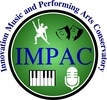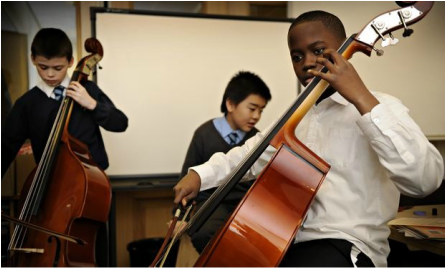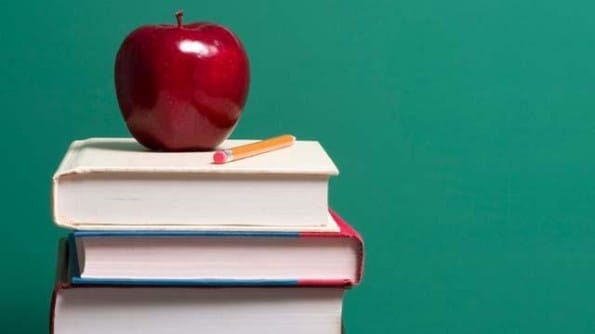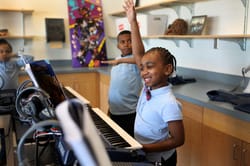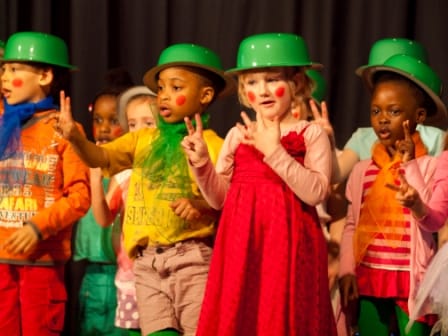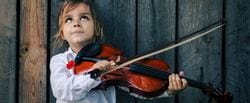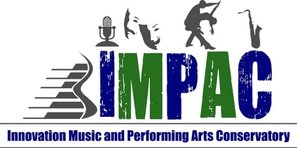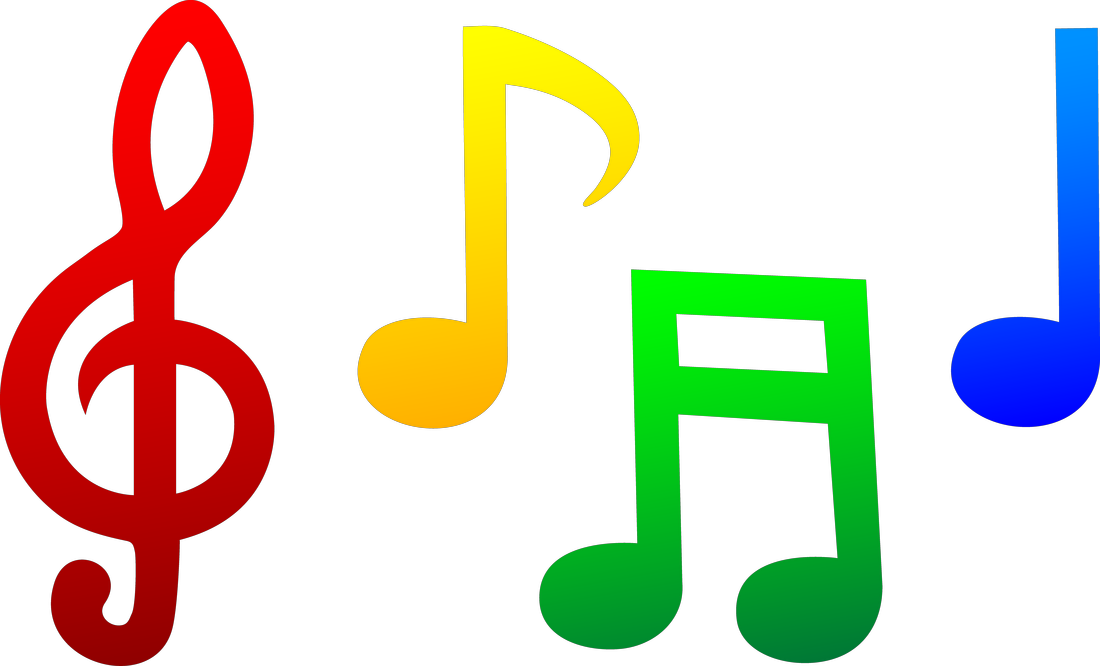About IMPAC
Innovation Music and Performing Arts Conservatory, a 501(c)(3) nonprofit tax-exempt performing arts organization, We promote excellence, creativity, and accessibility of the arts through performance events and instruction of the highest quality, in music and related artistic disciplines.
The Center is committed to the sustained development of creativity and cultural life in individuals and the city, by advancing artistic talents regardless of income and cultivating new audiences for fine arts.
Our rosters of professional instructors are selected based on these key factors:
Our Instructors have the necessary skills to clearly communicate their working knowledge of music to our students - no matter what age or level the student.
Our Instructors are experienced professional musicians and certified teachers.
Our Instructors recognize that teaching is essential for a professional musician to continue to extend their own knowledge and they have a genuine personal interest in the advancement of their students.
The Center is committed to the sustained development of creativity and cultural life in individuals and the city, by advancing artistic talents regardless of income and cultivating new audiences for fine arts.
Our rosters of professional instructors are selected based on these key factors:
Our Instructors have the necessary skills to clearly communicate their working knowledge of music to our students - no matter what age or level the student.
Our Instructors are experienced professional musicians and certified teachers.
Our Instructors recognize that teaching is essential for a professional musician to continue to extend their own knowledge and they have a genuine personal interest in the advancement of their students.
|
Arts in Education:
It is well-documented that music education programs can successfully address diverse academic and social needs, such as: Advancing academic achievement due to transferable study skills and enhanced self-esteem; developing attention skills, self-expression and physical dexterity; Broadening one’s understanding and appreciation of the world; and improving abilities such as self-discipline, collaboration, communication with others, and creativity. Through music, children experience the wholeness of language. Using music to teach reading draws on the natural rhythm and rhyme of language. Within group music experiences, children learn as they read, write, comprehend and express ideas. Through music, memory skills can be improved, and aural (listening) discrimination increased. |
Performance Programs
In collaboration with local artists, IMPAC has identified the need to create a special arts-in-education model that will connect the performing arts to the teaching of reading and writing for students between 2nd and 12th grade. The importance of the performing arts, which can both address art curriculum standards and improve early learning reading and writing teaching methods, is of growing interest to educators and policy makers in Newark, Irvington, and other cities in New Jersey and nationally.
Innovations Music and Performing Arts Conservatory has a strong team of music teachers, dance instructors, art teachers, and teaching artist that will participate in the development in training, study trips, and planning meetings in order to develop a set of curriculum units tied to early childhood and elementary reading/writing teaching objectives from English language arts literacy curriculum. In addition to the Project Team, two teaching performing artists associated with IMPAC will also participate. IMPAC will develop a plan, supporting activities, and resources that will be used to effectively engage young children in hands-on learning that directly strengthens the children’s reading and writing skills. The project will result in an instructional program that can be shared with schools and extended care programs throughout NJ.
• Music education opportunities are increasingly limited within the schools especially for youth whose test scores are low – arts electives are reduced.
• Quality music education outside of school is even more difficult to find, and still more difficult to afford, despite a variety of city and private programs. Our mission is to make music and arts education available to all.
Innovations Music and Performing Arts Conservatory has a strong team of music teachers, dance instructors, art teachers, and teaching artist that will participate in the development in training, study trips, and planning meetings in order to develop a set of curriculum units tied to early childhood and elementary reading/writing teaching objectives from English language arts literacy curriculum. In addition to the Project Team, two teaching performing artists associated with IMPAC will also participate. IMPAC will develop a plan, supporting activities, and resources that will be used to effectively engage young children in hands-on learning that directly strengthens the children’s reading and writing skills. The project will result in an instructional program that can be shared with schools and extended care programs throughout NJ.
• Music education opportunities are increasingly limited within the schools especially for youth whose test scores are low – arts electives are reduced.
• Quality music education outside of school is even more difficult to find, and still more difficult to afford, despite a variety of city and private programs. Our mission is to make music and arts education available to all.
The performance arts activities for the programs will be developed by the Executive Director and the teaching artists in collaboration with other members of the Project Team (performance art and classroom teachers). Assessment throughout will focus on the impact of arts integration on teaching and student performance in English language arts literacy, specifically reading and writing.
We rely on the generosity of our kind supporters and their gracious donations to continue these IMPAC programs and services. If you would like to contribute, please click to learn more and make a donation to our cause.
Benefits of studying music
For decades, scientists have studied how music can impact the ability for a student to learn and retain information, and scientists have even studied whether or not music had a physical impact on the brain itself. While scientists continue to study the impact music has on learning, there is no doubt that the effect music has on students is a powerful one.
If you or your child is considering taking music lessons, voice lessons or studying music, you should know a little about the benefits music offers.
How Music Effects Learning
In many ways learning music is much like learning a language. For students, learning how to understand music, read music or play an instrument can actually change the brain and impact other areas of learning. Numerous scientific studies suggest that the impact music has on the brain begins with connections brain cells make during musical training – connections that aid and assist other forms of communication including speech, language and reading. In other words, learning music is a form of exercise for the brain.
If you or your child is considering taking music lessons, voice lessons or studying music, you should know a little about the benefits music offers.
How Music Effects Learning
In many ways learning music is much like learning a language. For students, learning how to understand music, read music or play an instrument can actually change the brain and impact other areas of learning. Numerous scientific studies suggest that the impact music has on the brain begins with connections brain cells make during musical training – connections that aid and assist other forms of communication including speech, language and reading. In other words, learning music is a form of exercise for the brain.
1.INCREASE YOUR IQ
|
According to an article from The Telegraph online magazine, “New research suggests that regularly playing an instrument changes the shape and power of the brain and may be used in therapy to improve cognitive skills.” There is continually more evidence that musicians have organizationally and functionally different brains compared to non-musicians, especially in the areas of the brain used in processing and playing music. Some studies show that playing an instrument can increase your IQ up to 7 points.
|
2. INCREASE THE CAPACITY OF YOUR MEMORY
Research has shown that both listening to music and playing a musical instrument stimulate your brain and can increase your memory. A study was done in which 22 children from age 3 to 4 years old were given either singing lessons or keyboard lessons. A control group of 15 children received no music lessons at all. Both groups participated in the same preschool activities. The results showed that preschoolers who had weekly keyboard lessons improved their spatial-temporal skills 34 percent more than the other children. Not only that, but researchers said that the effect lasted long-term.
3. INCREASE MATHEMATICAL ABILITY
|
Reading music requires counting notes and rhythms and can help your math skills. Also, learning music theory includes many mathematical aspects. Studies have shown that students who play instruments or study the arts are often better in math and achieve higher grades in school than students who don’t. |
4. IMPROVE READING COMPREHENSION
According to a study published in the journal Psychology of Music, “Children exposed to a multi-year program of music involving training in increasingly complex rhythmic, tonal, and practical skills display superior cognitive performance in reading skills compared with their non-musically trained peers.” It’s not surprising to hear results like that because music involves constant reading and comprehension. When you see black and white notes on a page, you have to recognize what the note name is and translate it to a finger/slide position. At the same time, you also have to read what rhythms the notes are arranged in and force your tongue to produce the correct pattern
5. BUILD SELF CONFIDENCE
|
Overcoming musical challenges that you thought you’d never quite master can give you a great sense of pride. When you first start learning how to play an instrument, it seems like just holding a note for a couple beats or hitting a high pitch is an amazing accomplishment. Many small successes will eventually breed long term, innate self-confidence. |
6. REDUCE STRESS & BE HAPPY
Listening to and playing music can promote stimulation to areas of the brain that promote increased joy and decreased stress. During the past decade, the investigation correlation between music and the brain has proven that music can modulate activity in parts of the brain that are known to be crucially involved in emotion. The potential of music to modulate activity in these structures has important implications for the use of music in the treatment chronic stress.
7. ENHANCE HAND EYE COORDINATION
8. LEARN PERSEVERANCE & SELF DISCIPLINE
Learning to play an instrument takes time and effort, which teaches patience and perseverance. Musicians have to work through difficult sections of music multiple times in a row before they can play it correctly. Practicing often and working on the hard parts requires perseverance. The best musicians in the world are masters of discipline.
9. INCREASE COOPERATION
Cooperation is an important aspect of being successful in life. Playing an instrument requires you to work with others to make music. In band and orchestra settings you must learn how to cooperate with the people around you. Also, in order for a group to make beautiful music, each player and section must learn how to listen to each other and play together.
10. LEARN RESPONSIBILITY
Maintenance and care are very important in keeping an instrument in working condition. Each instrument has different procedures to keep it functioning properly, but most instruments need cleaning and some form of oiling/greasing. In addition to maintenance responsibilities, there are other aspects such as remembering music events (like rehearsals and performances) and making time to practice.
Curriculum units will include the following components:
Preparatory activities: Children will be introduced to the themes by discussing the first selected work of literature, viewing reproductions of a related works, and participating in a performance arts activity related to the theme. This will be conducted by the teaching artists.
Cultural Institution visits: Students will visit a Museum or Performance Art Institute, to look at and talk about the works on hand which they have been introduced to in the classroom. They will also view additional works of art related to the theme, and conduct a performance piece reinforcing what they have learned so far. The visits will are estimated to be 2 hours in length.
Follow-up activities: Children will revisit the artist covered in lessons (music, dance, vocal) where they will discuss and “memory map” their museum experience (writing and visual project). Children will also discuss an additional piece, read other examples of literature connected to the selected genre, and engage in a culminating performance activity. This activity will feature the creation (illustrating and writing) of short stories with a recital related to the art works and the themes.
This unique program is designed to provide children with 10 weeks of extraordinary performing arts education through the use of unique music programs, musicianship/theory classes, group instrumental, voice instruction, dance instruction, acting instruction and monthly performance activities. Our instructors will work with the children, teens and adults to promote learning and experiencing music without intimidation. The program concludes with a gala concert.
Preparatory activities: Children will be introduced to the themes by discussing the first selected work of literature, viewing reproductions of a related works, and participating in a performance arts activity related to the theme. This will be conducted by the teaching artists.
Cultural Institution visits: Students will visit a Museum or Performance Art Institute, to look at and talk about the works on hand which they have been introduced to in the classroom. They will also view additional works of art related to the theme, and conduct a performance piece reinforcing what they have learned so far. The visits will are estimated to be 2 hours in length.
Follow-up activities: Children will revisit the artist covered in lessons (music, dance, vocal) where they will discuss and “memory map” their museum experience (writing and visual project). Children will also discuss an additional piece, read other examples of literature connected to the selected genre, and engage in a culminating performance activity. This activity will feature the creation (illustrating and writing) of short stories with a recital related to the art works and the themes.
This unique program is designed to provide children with 10 weeks of extraordinary performing arts education through the use of unique music programs, musicianship/theory classes, group instrumental, voice instruction, dance instruction, acting instruction and monthly performance activities. Our instructors will work with the children, teens and adults to promote learning and experiencing music without intimidation. The program concludes with a gala concert.
"If you’re writing a medium or long section of text, break it up with more than one paragraph for better readability.”
